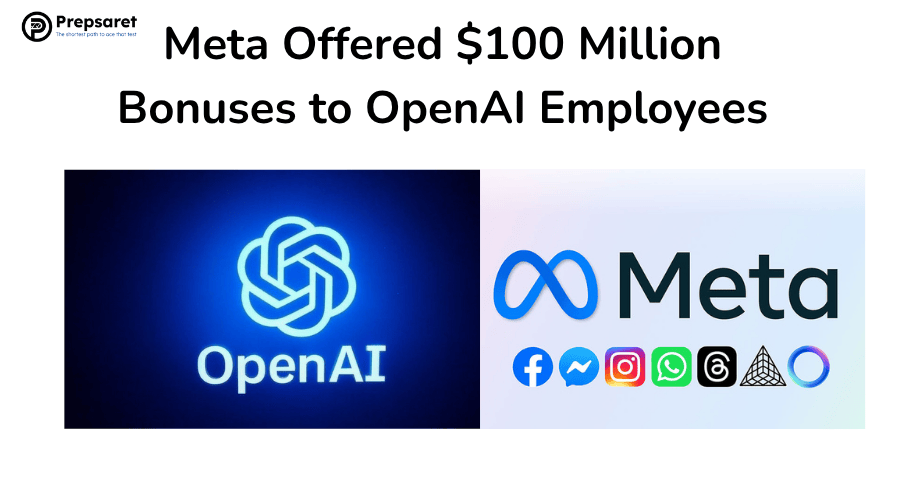Key Points:
- Meta attempted to recruit OpenAI employees by offering signing bonuses as high as $100 million in a bid to strengthen its AI team.
- OpenAI CEO Sam Altman confirmed that none of OpenAI’s top talent accepted Meta’s offers.
- Meta is aggressively investing in AI, including a significant deal with Scale AI and its focus on developing “superintelligence” capabilities.
Meta has been aggressively seeking top talent from OpenAI by offering enormous financial incentives, including $100 million signing bonuses, according to OpenAI CEO Sam Altman. Speaking on the “Uncapped” podcast hosted by his brother, Altman revealed that despite Meta’s efforts to lure OpenAI employees with lucrative compensation packages, none of the organization’s top researchers have accepted these offers.
The pursuit of OpenAI talent comes as Meta, the parent company of Facebook, ramps up its artificial intelligence strategy under the leadership of CEO Mark Zuckerberg. Meta has been keen on enhancing its AI capabilities, particularly with the creation of its “superintelligence” unit, a project dedicated to building AI systems that surpass human intelligence.
Meta’s Strategy to Build an AI Powerhouse
Meta’s efforts to attract AI researchers come as part of its broader ambition to bolster its AI research division. The company’s AI focus has intensified following setbacks in its development of competitive AI models.
Last year, Meta delayed the release of a major AI model due to concerns about its performance. As part of its strategy to catch up with rivals, Meta invested a staggering $14.3 billion in Scale AI, a data-labeling startup, and hired its founder, Alexandr Wang, to lead the new “superintelligence” lab.
Meta’s approach to acquiring talent is part of a growing trend in the tech industry, where AI researchers are being treated like top athletes, with companies offering enormous signing bonuses in hopes of securing their expertise. Altman acknowledged that Meta’s compensation offers were significant but pointed out that none of OpenAI’s leading scientists had decided to leave for Meta. He further criticized Meta’s strategy, stating, “You’re always going to where your competitor was, and you don’t build up a culture of learning what it’s like to innovate.”
Altman’s remarks underscore a broader tension between Meta and OpenAI, both of which are competing to lead the AI race. According to Altman, Meta views OpenAI as its “biggest competitor,” but he expressed doubt about the effectiveness of simply replicating OpenAI’s success.
The Broader AI Talent War
Meta’s attempts to poach OpenAI staff highlight the increasing competition in the AI sector. This battle for talent has become a high-stakes endeavor, as the success of AI models is often attributed to the contributions of individual engineers and researchers. Companies like OpenAI, Google, and Meta are all vying to attract the best minds to push the boundaries of artificial intelligence.
Despite Meta’s aggressive recruitment tactics, Altman remains confident in OpenAI’s position. “So far, none of our best people have decided to take them up on that,” he said, further emphasizing that the quality of the work environment and the culture at OpenAI play a pivotal role in retaining talent.
While Meta has not publicly responded to Altman’s statements, it’s clear that the company is making significant investments in AI as it seeks to compete with OpenAI and other global players in the field. As the race for AI dominance intensifies, the future of AI innovation will likely be shaped by these high-stakes battles for talent, with companies willing to pay astronomical sums to secure the best minds in the industry.

